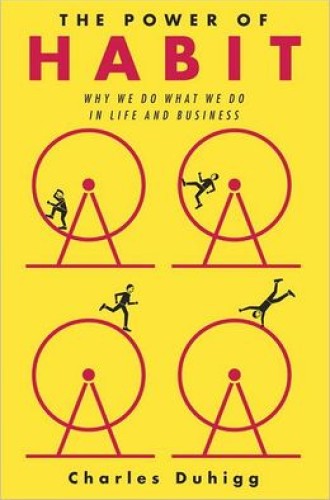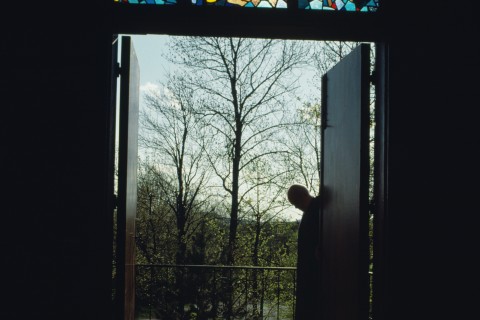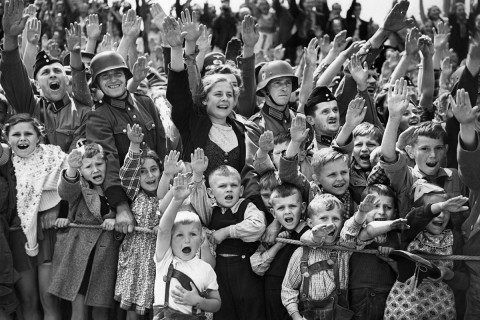The Power of Habit, by Charles Duhigg
In 2002, with the publication of The Tipping Point: How Little Things Can Make a Big Difference, Malcolm Gladwell sparked enormous popular interest in brain science. Later, his wonderfully titled and well-written Blink: The Power of Thinking Without Thinking (2007) established the field of brain science for popular audiences and became the standard primer on the brain’s plasticity.
Many other interesting books have appeared in this emerging genre, combining vast scientific data with the sort of popular, narrative-driven exposition perfected by Gladwell. Two of the most popular recently have been Imagine: How Creativity Works, by Jonah Lehrer, and The Power of Habit: Why We Do What We Do in Life and Business, by Charles Duhigg. Both are filled with intriguing stories and personalities, and both entertainingly introduce general readers to scientific data. They also represent the worst and the best of this genre, respectively.
Read our latest issue or browse back issues.
Representing the worst, Imagine came in for very strong criticism almost immediately upon publication for its simplifications and some dubious conclusions. Isaac Chotiner of the New Republic called “almost everything” in the lead narrative of the book—a biographical sketch of Bob Dylan and an account of the composition of his greatest song, “Like a Rolling Stone”—“inaccurate, misleading, or simplistic.” As a Dylan aficionado myself, I concur.
Later Lehrer was outed for fabricating quotes from Dylan and for lying to another journalist investigating the quotes. Now his ethics and trustworthiness were suspect. Ultimately, Lehrer announced publicly that he had lied and then hidden his tracks; he resigned in disgrace from the New Yorker, and his publisher yanked the book from circulation (though by then it had already sold over 2 million copies).
Far more developed and convincing in terms of its overall plan and argument and certainly far more trustworthy, Duhigg’s The Power of Habit will remind readers of Gladwell’s best work, and it represents the best this genre can muster. An award-winning investigative reporter for the New York Times, Duhigg may even surpass Gladwell, particularly in his ability to provide pragmatic and concrete instructions on how to think about and change personal habits. All of his insights are rooted in the emerging science of habit formation, an influential field in the business world and perfected by retail giants like Target. The implications of the book are intriguing for purveyors of faith as well.
Individual change, Duhigg argues, often revolves around certain “keystone habits” that dominate our lives. For example, physical exercise is a keystone habit for some people—a habit that affects many other areas of life in positive ways. But for many of us, bad habits stand between ourselves and such healthy practices. In Duhigg’s account, change commences with the perception of the cues that trigger bad habits and proceeds from there to an embrace of the surprising power of “small wins.” A small win might be, for example, taking a ten-minute walk after dinner, rather than climbing Mount Everest.
Change requires the expectation of reward, or what the spiritually inclined might call hope. We need the capacity to believe that things will get better; change must be an imaginable and feasible reality. As for will power, Duhigg claims that it is grounded in effort, habitual practice and the prevailing agency of human beings. He depicts it as a learnable skill, as something that can be strengthened like a muscle that becomes stronger with habitual use.
Duhigg writes about three kinds of habits: individual, organizational and societal. Fascinating individuals and large groups provide the narratives at the heart of the book. He follows pro football coach Tony Dungy, who changed the mind-set of a floundering franchise; Olympic swimming champion Michael Phelps; corporations that have seen breakthroughs, including Alcoa, Target and Procter and Gamble; Martin Luther King Jr., whose networking helped to build a mass movement; and Rick Warren, the pastor of Saddleback Church in California.
One of the book’s best sections is the discussion of Starbucks as an educational institution—one of the largest in the United States, Duhigg claims. As odd as that might sound, his argument is compelling: Starbucks has devoted much research and planning to the development of certain kinds of employees, accomplished in large part by altering bad habits and instilling good ones.
In another inspiring section, he writes about how Rosa Parks was a well-known and well-liked local personality whose extensive social network accounted for the urgency of the 1955–1956 Montgomery bus boycott. Duhigg’s approach challenges the romantic narrative of a single heroic individual leading a mass movement.
Duhigg “thinks about thinking” and encourages us to do the same. His insistence on human agency is encouraging. For too long in the postmodern context, the human subject has been viewed largely as a puppet on the strings of culture, a stage prop of sinister, unseen forces of power. Duhigg emphasizes that our habits are the fruit of many small decisions.
As it turns out, the brain is a much more fascinating, resilient and ever-evolving organ than we imagined, and neuroscience tells us a different story about the brain than what we’ve been getting from, say, the French philosophers who’ve been all the rage in humanities departments since the 1960s. Contrary to French theorizing about the captive, postmodern “subject,” Duhigg insists that humans have stewardship of the brain, that there are specific acts of moral agency that each of us can deploy in the interests of our brain, that we can in large part cocreate the kind of brain we’d like to have, and that it’s up to each of us to nurture and cultivate our brains throughout our lives.
This effort does require work, and in terms of spirituality it calls for habits and practices that testify to our convictions. In this sense, neuroscience supports recent works urging a return to Christian spiritual practice and disciplines. Our spirituality consists primarily of our habits—practices we do over and over. Duhigg’s book explains how and why such practices become hardwired into our brains. Although Duhigg’s title focuses on “life and business,” The Power of Habit also provides intriguing possibilities for those sowing the fields of the spirit.







